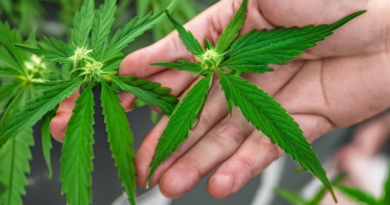California Hemp Retailers Raise Alarm Over Gov. Newsom’s Proposed Regulations
California Hemp Retailers Sound Alarm Over Proposed Regulations
California hemp retailers are raising concerns over a governor-backed proposal to restrict the sale of hemp-derived cannabinoids. These retailers caution that such restrictions could lead to business closures and a reduction in state revenue, while supporters of the proposal argue it would address public health risks and close regulatory loopholes. As the legislative timeline tightens, stakeholders from various sectors are stepping up their advocacy efforts to shape the outcome.
Potential Economic Fallout
The hemp industry, alongside licensed marijuana growers, warns that increased regulations would put them at a significant competitive disadvantage against out-of-state hemp companies. These out-of-state entities are not beholden to California’s costly regulations, meaning local businesses would struggle to compete on price and availability. Critics of the proposal argue that the measures could decimate an industry valued at $28 billion, hitting hemp farmers and retailers hard and potentially leading to widespread business closures.
This economic angle is reinforced by the support from labor unions and industry associations. The United Food and Commercial Workers labor union and the California Cannabis Industry Association (CCIA) support the bill to the extent that it seeks regulatory parity. They highlight that while marijuana products are over-regulated and over-taxed, hemp products often escape stringent regulatory scrutiny, creating an uneven playing field.
Concerns Over Medical Access
One of the key contentious points surrounds the impact on medical patients, particularly children who rely on CBD products for conditions such as seizure disorders. Parents are concerned that tighter regulations would restrict access to these essential medications. The proposal could potentially bar families from obtaining the CBD products they depend on, raising serious health and quality-of-life issues for vulnerable individuals.
Governor Gavin Newsom’s amendments to AB 2223 aim to bring both the hemp and marijuana supply chains under the control of the California Department of Cannabis Control (DCC). These amendments include a requirement for hemp products containing THC or other intoxicating cannabinoids to be sold through licensed dispensaries. However, pure CBD products would not be subjected to the same rule, provided they do not have detectable levels of THC or other intoxicating cannabinoids.
In a bid to bolster public health, the bill also seeks to ban synthetic cannabinoids and the retail sale of hemp flower in any form. The administration argues that these measures are necessary to thwart the sale and distribution of illegal hemp products, which pose public health risks, particularly to children.
Conclusion
As the legislative session draws to a close, with key deadlines looming, the debate over California’s hemp regulation proposal is intensifying. Hemp retailers and medical patients are fervently voicing their concerns, while supporters of the bill urge that regulatory consistency is crucial for market fairness and public safety. Lawmakers have a tight window to finalize the legislation, with considerable pressure coming from both sides of the aisle.
The bill must pass out of committee by August 16 to remain active this session, with the legislature adjourning on August 31. As the hemp industry contemplates its future, stakeholders eagerly await the final decision, which will undoubtedly have far-reaching consequences for businesses, patients, and the state economy.




